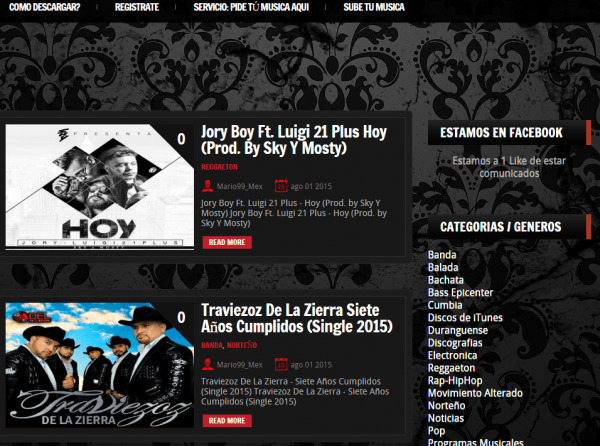 In many European countries it’s a mere formality to order local Internet providers to block access to pirate sites, but this is not the case in Mexico.
In many European countries it’s a mere formality to order local Internet providers to block access to pirate sites, but this is not the case in Mexico.
In 2015 the Government’s Mexican Institute of Industrial Property (IMPI) ordered local ISP Alestra to block access to the website mymusiic.com.
The website in question was targeted at a Mexican audience and offered music downloads, some of which were shared without permission.
The ISP was not pleased with the order and appealed it in court. Among other things, the defense argued that the order was too broad, as it also restricted access to music that might not be infringing.
A few days ago the case was heard by the Supreme Court of Justice of the Nation, which ruled that the Government’s order is indeed disproportional. Mexican law does allow for blocking orders, but these have to be targeted at specific content instead of the website as a whole.

“Although such [blocking] measures are provided for by Law and pursue a legitimate purpose, the fact is that they do not meet the requirements of necessity and proportionality since the restrictions on the right of freedom of expression must refer to specific content,” Minister Alberto Perez Dayán said.
“Hence the generic bans on the operation of certain websites and systems may violate the human right of freedom of expression,” he added.
The broad request ordered by IMPI equates to censorship and violates the constitution. Minister Perez Dayán compared the proposed blockade with the shutdown of a printing press, for publishing a single work without permission.
With this Supreme Court decision in hand, it will be very difficult for the authorities, or rightsholders, to demand similar blockades in the future. Instead, they will have to resort to targeting specific content, through takedown notices or via more targeted blocking efforts.
Mymusiic.com, the site that got the landmark case started, has quietly disappeared and is no longer operational.
Update: In November 2017 the Mexican Supreme Court clarified that blocking an entire website is allowed if the substantial majority of the site’s content is copyright infringing, the copyright lawyer reports.





